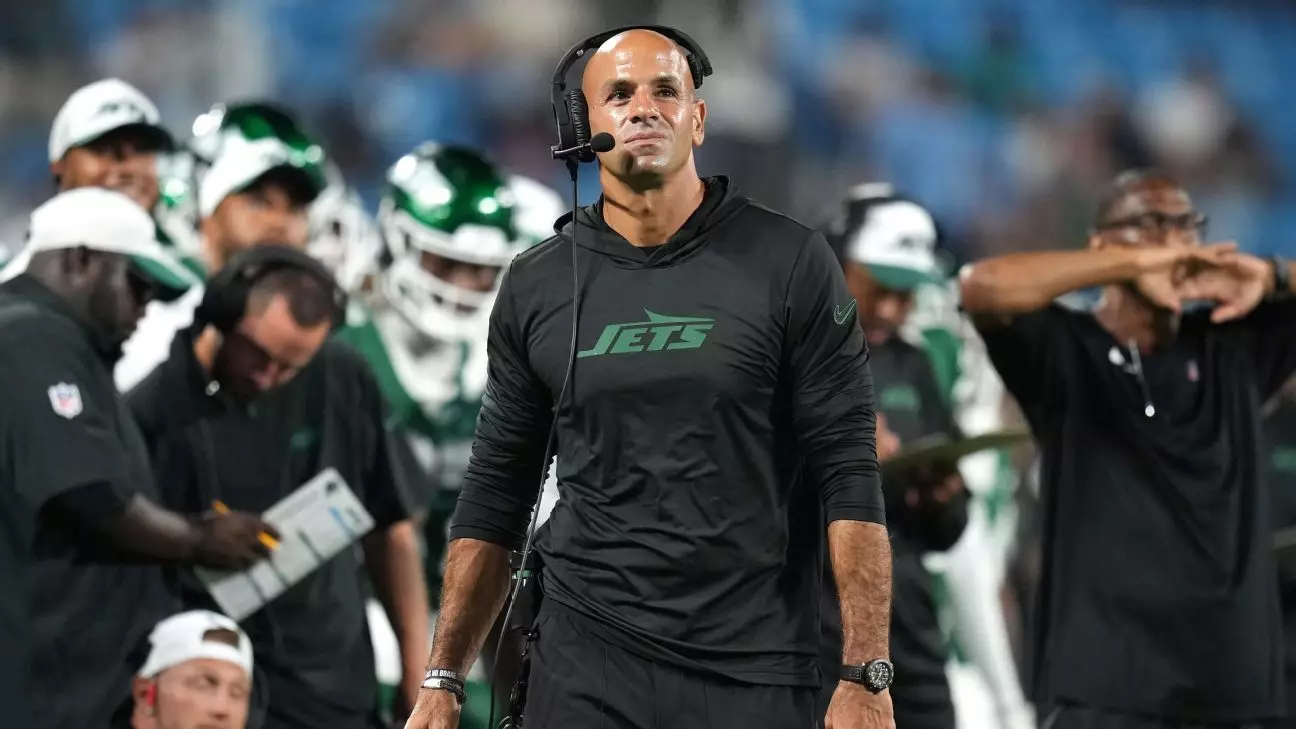On Tuesday, the New York Jets took a bold step by parting ways with head coach Robert Saleh following a lackluster start to the season. Owner Woody Johnson’s announcement reflected the palpable frustrations within the organization, as the team stared at a disappointing 2-3 record. Johnson’s statement underscored the urgency of the situation: “We are not where we should be given our expectations.” This sentiment embodies the struggle that the Jets have faced over the years—a rich history of unmet aspirations culminating in the recent coaching woes.
Saleh’s dismissal, after three-and-a-half seasons, is not just a reflection of the present. It serves as a significant marker in the team’s recent history, indicating that the franchise, which is often dubbed the league’s perennial underachiever, is willing to make substantial changes in pursuit of success. His successor, defensive coordinator Jeff Ulbrich, assumes the interim role with a daunting challenge: to turn around a team that is teetering on the edge of another disappointing season.
Saleh’s record of 20-36 has left a mark that is hard to overlook, particularly in light of the team’s lofty ambitions following a successful offseason. The arrival of veteran quarterback Aaron Rodgers was heralded as a turning point—an opportunity for the Jets to finally break free from their long-standing struggle to find consistent quarterback play. However, as Saleh’s firing illustrates, the fundamental issues persist, with questions surrounding not only team performance but also the coaching staff’s ability to maximize the talent at their disposal.
This shake-up also marks a critical juncture in Johnson’s twenty-five years of ownership; it is the first time he has opted to dismiss a head coach mid-season. The significance of that decision cannot be understated—it reveals a sense of urgency within the organization to eliminate any lingering discontent and catalyze a swift turnaround. Notably, Saleh’s exit adds him to a list of coaches—including Dennis Allen and Joe Philbin—who were similarly dismissed following disappointing outcomes in London, adding a historical context to his fate.
Two days after a tough loss to the Minnesota Vikings, Saleh had appeared optimistic about the prospect of recovering from a two-game losing streak, professing confidence in the team’s ability to improve. “There’s so much football to be played,” he asserted, reflecting a mindset of resilience amidst adversity. Yet, those words starkly contrast with the reality of his removal, signifying that optimism alone isn’t sufficient for survival in such a high-stakes environment.
For the Jets’ fanbase, which has been subject to perennial hope followed by bitter disappointment, Saleh’s mixed results only amplify the frustration. The team has been plagued by quarterback instability throughout his tenure, with six different quarterbacks being utilized—a statistic that starkly highlights leadership challenges. While Saleh’s defense showcased resilience at times, the inability to cultivate a steady offensive rhythm has led to mounting scrutiny.
As Jeff Ulbrich steps into the position of interim head coach, the question arises: can he rally the team to fulfill its potential? With a coaching philosophy built on toughness and respect, Ulbrich is expected to harness the talent that Saleh’s regime cultivated. If he is successful, it could signify a turning point not only for the current season but potentially for the franchise’s future.
What will be crucial now is his dynamic with Rodgers, who has been a polarizing figure in the team’s narrative. Recent assurances of their good relationship will need to translate into on-field performance, as the quarterback plays a pivotal role in steering the team’s momentum. The collaborative engagement they reportedly share may be key to what lies ahead.
In the end, Saleh’s firing serves as a stark reminder of the unforgiving nature of professional football. Teams like the Jets must confront their reality with resilience and resolve if they wish to cultivate a culture of success. The franchise’s ongoing struggle intertwines itself with the expectations of an eager fanbase, who long to witness a transformation from promise to fruition. As the Jets embark on this new chapter under Ulbrich, fans will be watching closely to see if the coaching changes can finally steer this beleaguered franchise toward the success it has long sought.


Leave a Reply